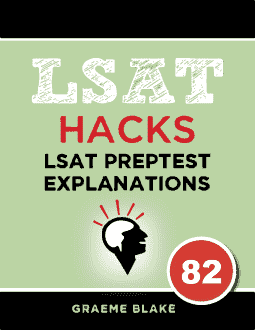QUESTION TEXT: Anderson: Taking the long view, history shows that word usage…
QUESTION TYPE: Point at Issue
ARGUMENTS: Anderson says languages always change and evolve, and even become new languages. So, we needn’t worry about breaking grammar rules.
Lipton argues that this is like saying we shouldn’t worry about breaking the law, as laws change and nations come and go. This is wrong because we should enforce the law.
ANALYSIS: Lipton is essentially talking about anarchy. Laws differ between different countries and different times. But a society that enforces no laws merely has anarchy. By analogy, we can infer that if nobody cared about grammar rules we would have linguistic anarchy.
So, the two people disagree about whether we need to enforce grammar rules. Anderson says “no” in their final sentence. Lipton implies “yes” in their final sentence, when they say laws should be enforced. (In the analogy, laws = grammar rules).
Note that Lipton doesn’t directly say anything about languages. So, it’s very hard to pick any answer that is about the specifics of language.
___________
- CORRECT. This is odd language, but it’s the correct answer. It would have been easier to pick had it said “we should try to stop grammar errors” or something like that. Lipton says “yes, resist violations”. Anderson disagrees.
- Lipton actually appears to agree. In their analogy they say “nations come and go”. This is analogous to whole new languages appearing.
- Neither Anderson nor Lipton talks about how easily users can adapt to linguistic changes!
- Neither Anderson nor Lipton mentions how often rules are broken! They only talk about whether violations should be discouraged.
- Lipton didn’t mention languages directly, so we have no idea what their opinion is on how languages change.
Recap: The question begins with “Anderson: Taking the long view, history shows that word usage”. It is a Point at Issue question. Learn more about LSAT Point at Issue questions in our guide to LSAT Logical Reasoning question types.
More Resources for Point at Issue Questions
- Intro Course lesson: This intro course lesson covers Point at Issue questions.
- Mastery Seminar lesson: This LR Mastery seminar lesson covers point at issue questions.


Leave a Reply